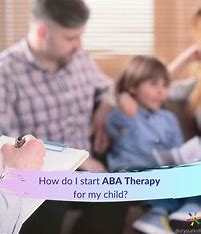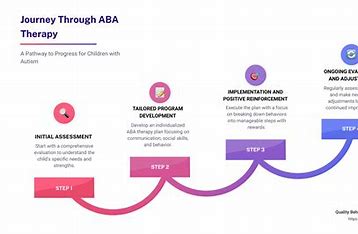- Getting Started with ABA Therapy: A Comprehensive Guide
- Specifications
- Understanding ABA Therapy
- ABA Therapy for Autism and Other Conditions
- Step-by-Step ABA Therapy: Getting Started
- Step 1: ABA Therapy Training
- Step 2: Assess the Individual
- Step 3: Develop a Treatment Plan
- Step 4: Implement the Plan
- Step 5: Monitor Progress and Adjust as Needed
- Benefits of ABA Therapy
- ABA Therapy Success Stories
- ABA Therapy Best Practices
Getting Started with ABA Therapy: A Comprehensive Guide

Specifications
| Feature | Details |
|---|---|
| Camera | 108 MP |
| Battery | 5000 mAh |
| Display | 6.7 inches |
Welcome to our step-by-step guide on ABA Therapy. If you are new to Applied Behavior Analysis, this article is a perfect introduction to ABA therapy for beginners. Here, we’ll walk you through the basics and best practices to help you implement ABA therapy techniques effectively.
Understanding ABA Therapy

Before we delve into the step-by-step ABA therapy guide, it is crucial to understand what ABA therapy is. ABA therapy, or Applied Behavior Analysis, is a scientific discipline that applies behavioral principles to change socially significant behaviors.
ABA Therapy for Autism and Other Conditions
One of the most recognized applications of ABA therapy is in treating autism in children. But it’s also used for a range of other conditions like ADHD, anxiety, and more. We’ll share some ABA therapy success stories later in this article to demonstrate its effectiveness.
Step-by-Step ABA Therapy: Getting Started
Step 1: ABA Therapy Training
The first step to implementing ABA therapy at home or in a professional setting is training. This will help you understand the ABA therapy process and the techniques used.
Step 2: Assess the Individual
The next step is to conduct a thorough assessment of the individual who will be receiving the therapy. This can include observation, interviews, and standardized tests.
Step 3: Develop a Treatment Plan
Using the information gathered from the assessment, an individualized treatment plan is developed. This plan will serve as a roadmap for the ABA therapy process.
Step 4: Implement the Plan
The treatment plan is then put into action. This involves using specific ABA therapy techniques and tools to encourage positive behavior changes.
Step 5: Monitor Progress and Adjust as Needed
The final step is to regularly monitor the individual’s progress and adjust the treatment plan as needed.
Benefits of ABA Therapy
ABA therapy has numerous benefits, from improving communication skills to reducing problematic behaviors. We’ll share some data later in this article to highlight the effectiveness of ABA therapy.
ABA Therapy Success Stories
We’ve seen countless success stories through our ABA therapy work. From children with autism improving their social skills, to adults overcoming their anxiety, the potential for positive change through ABA therapy is immense.
ABA Therapy Best Practices
Whether you are implementing ABA therapy at home or in a professional setting, there are certain best practices to follow. These include providing clear instructions, reinforcing positive behaviors, and maintaining consistency, among others.
We hope this ABA therapy guide provides you with a solid foundation to get started. Remember that each individual is unique, and what works best may vary. Stay patient, remain flexible, and celebrate every victory along the way.



